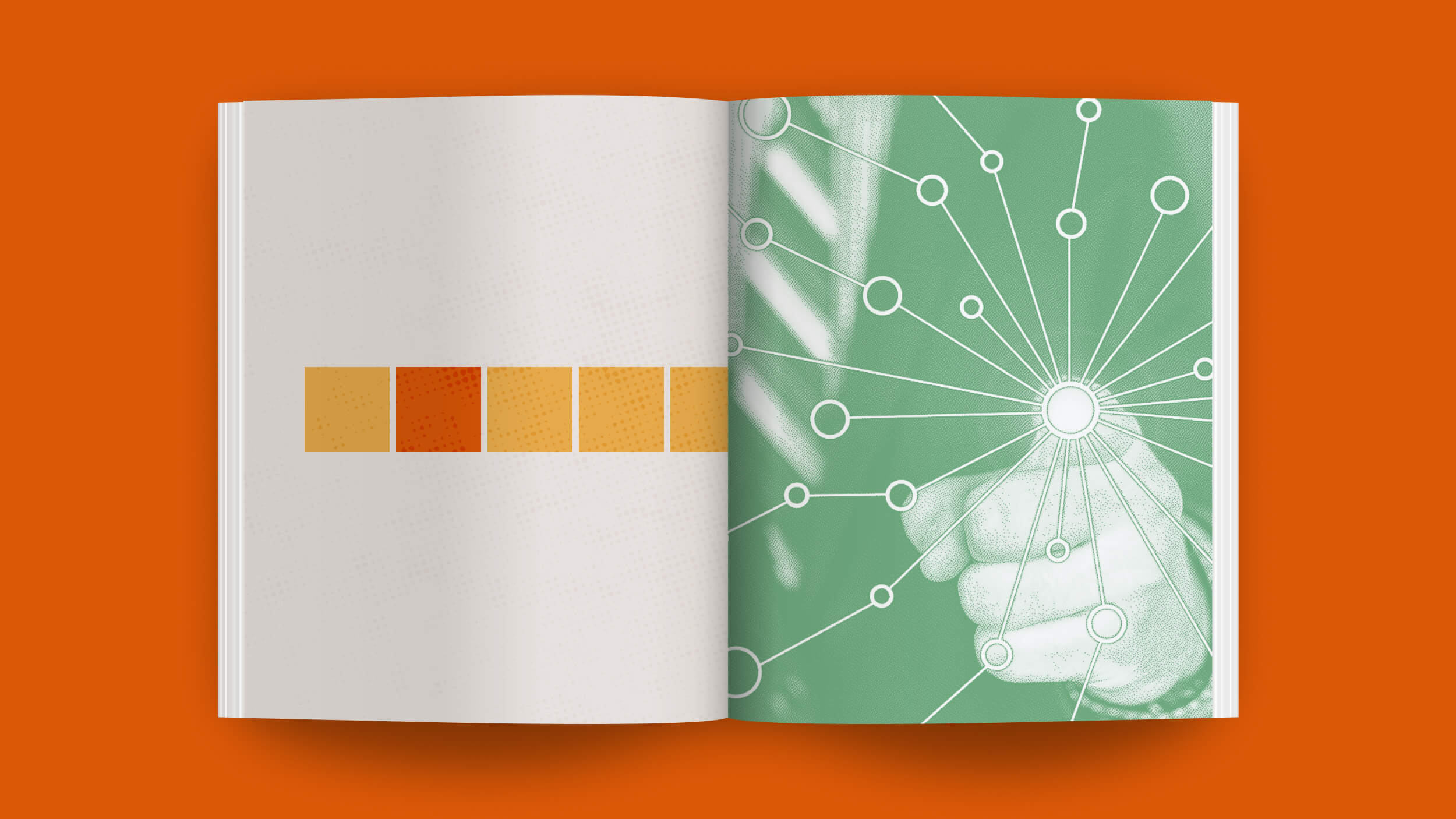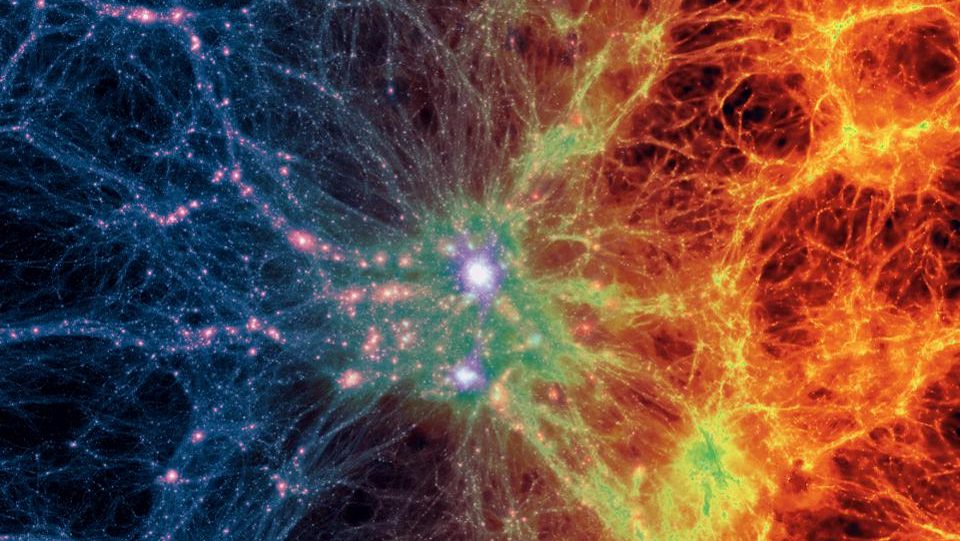No one, not Charles Mingus, Art Blakey or Dizzy Gillespie is born a great bandleader. We are not deeply conscious of others. We need to train our minds to be that way. After all, Harvard professor Dan Gilbert has found that aimless thoughts occupy our minds 46.9% of the time.
And so if we wish to be better collaborators in any organization, we need to establish what the philanthropist and author Jeff Walker calls the “flow state.”
The jazz analogy is an apt one for Walker, who serves on the board of the Berklee College of Music. Walker says that when he first learned to play with other people in jazz bands and wind ensembles he realized what a flow state was all about – he had an important part, along with others, “in producing a song that none of us by ourselves could play.” And so this created a common goal.
So what does this mean if you’re not a jazz musician? How can you find the collective flow state and become a better creative problem-solver?
Do you like to eat and drink? Sharing “minds and spirits as you share a meal” is one recommendation Walker has for establishing a flowing conversation in which everyone listens and everyone participates.
On a personal level, Walker says you can train yourself to be more deeply conscious of others through mindfulness, meditation and contemplation. There are even sites online that offer instruction on meditation for free, such as headspace.com.
If you don’t think this is right for you, consider how, in terms of collective problem-solving we are constantly “hampered by conflict, dissension, confusion, and mutual incomprehension.” Remember that your brain is devoted to ‘aimless thoughts’ nearly half of the time.
However, think how much more efficient any team would be if individuals take ownership of their own thoughts and become more present. “If we’re in flow state more frequently,” Walker says, “we’re all going to be more effective.
Jeff Walker: One of the areas I’m really interested in is getting groups of people to work together in a flow state. A common place where you forget time. That it’s fun, interesting and highly productive. Now when I was in seventh grade, I walked into the band room wanting to learn music. They handed me, because I had braces, a tuba and said this is what you’re gonna play. Okay, great. And I started learning how to play with others and started playing in jazz bands and wind ensembles. And so what I started feeling is that I was an important part along with others in producing a song that none of us by ourselves could play. And so this common goal of working together was produced by a musical experience. And so that’s kind of how I look at that flow state. If you – actually I’m on the Board of Brooklyn College of Music which is a great music school, contemporary music, but it does a lot of jazz.
So imagine you’re in a jazz band and the great skills in the jazz band are to be one, a great player. Got it. But two, to have a managed ego so that you put aside yourself and listen to the other great performers as well. And then you will start innovating, you’ll start jamming with them based on what they see and what they say. So how they perform and the music sound that comes out of it is unique and something different than you could have ever done by yourself. We’re all in flow state in one shape or form sometime. You’ve experienced it. Sports figures experience it on the field where they describe things as opening up. The field opens. You can experience that when – I was an old computer science guy – when I was working on a computer program, all of a sudden I woke up four hours later having done a lot and kind of lost a sense of time. That’s what a flow state is. It tends to – there’s a lot of skills and tools – a lot of tools you can use to get into a flow state more frequently. We’ve done research at Yale using FMRIs to analyze what goes on in the brain. And you can see when people are in a present state more frequently using contemplative skills.
So the skills of mindfulness, meditation, contemplation – you can get there with yoga. You can get there lots of different angles. You’re training your mind. And we’re actually seeing neurons, neuronal paths change in the mind. That’s through the FMRIs, this is at the University of Wisconsin. This is through Harvard Research. And so how can you get individuals to experience this flow state by going into deeper contemplation, being quiet. The average number of thoughts that go through your mind – you can actually allocate them out and a lot of different studies have gone through it. Seventy percent of them on average are about the past. Twenty percent of those thoughts are about the future. Ten percent are about now. So what if you could make that ten percent larger. And that’s really what flow state’s about is dropping those thoughts. You know, how do you drop thoughts? I don’t know how to do that. Well, by being quiet and letting those thoughts just happen but letting them go. There’s lots of tools and techniques for doing that and go online and check out headspace.com. It’s one of the companies that you can go on and for free they’ll teach you about meditation. Or do yoga or do Tai chi or just be quiet. Or go to your church and pray. Those are all states of contemplation and you’re training your mind and your paths in your mind are changing.
And now there’s devices coming that will allow you to feel it. So this experience that I felt in music. You say, “Ah, I want to do that again.” And then you can see it in your brain. There’s actually one company called Interaxon. You put this device on your head, a headband, and it will measure brain waves. And through Bluetooth access computer programs that allow you to train your brain in saying oh, that’s what it feels like to be more accurate. They have little games you can play to increase, make it more likely that you’ll be in a present state.
So what if we did that for ADHD. They’re working on it. So right now they can identify the brainwaves that identify ADHD. The FDA just approved that. So now a lot of people are working on what if we get biofeedbacks with children and adults don’t need the drugs that they are currently taking for ADHD. It’s a huge application. Think of how more effective people will be if they’re able to train their own minds. If you want to go to sleep more quickly, do that. So think how more efficient any team was from companies to nonprofits to collaborations if individuals take ownership of their own thoughts and become more present and we’re in flow state more frequently, we’re all gonna be more effective.
Directed/Produced by Jonathan Fowler and Dillon Fitton





